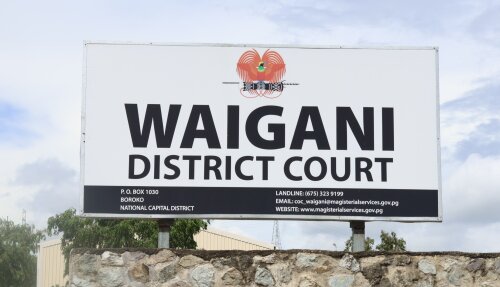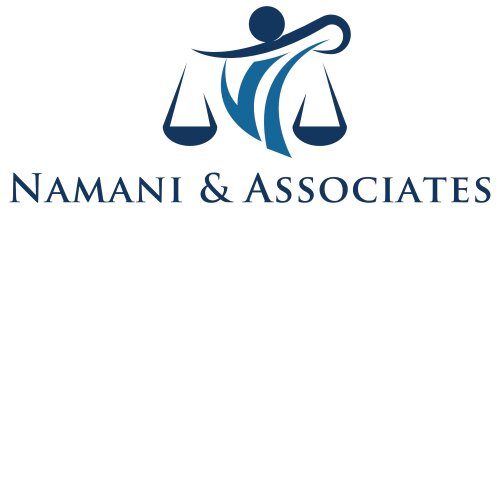Best Appeal Lawyers in Papua New Guinea
Share your needs with us, get contacted by law firms.
Free. Takes 2 min.
Or refine your search by selecting a city:
List of the best lawyers in Papua New Guinea
About Appeal Law in Papua New Guinea
Appeal law in Papua New Guinea is a critical aspect of the legal system, providing a mechanism for individuals and entities to challenge decisions made by lower courts. This process is designed to ensure fairness, accuracy, and justice in the legal system by allowing for the review and reconsideration of cases. Appeals can typically be made in both civil and criminal matters, and they play a significant role in upholding the rule of law and protecting the rights of individuals.
Why You May Need a Lawyer
Engaging a lawyer for an appeal is often essential due to the complexity and procedural requirements involved in the appellate process. Common situations where legal help may be necessary include:
- When a decision in a trial court seems to contain legal errors.
- If new evidence has emerged that could significantly impact the case outcome.
- When an individual believes their rights were not adequately protected in the original trial.
- If there is a perceived bias or unfairness in the trial court's decision-making process.
In these scenarios, a lawyer specialized in appeals can provide expert guidance, navigate the intricate legal frameworks, and present compelling arguments to appellate courts.
Local Laws Overview
In Papua New Guinea, the appellate process is governed by specific local laws and procedural rules. Key aspects include:
- The right to appeal is generally available to parties who are dissatisfied with a verdict or judgment, subject to specific conditions and timeframes.
- Appeals must usually be lodged within a prescribed period after the original decision, making timely legal advice crucial.
- The appeals are typically heard in the National Court or the Supreme Court, depending on the nature of the case.
- The appellate court reviews the case record from the lower court and may allow new evidence, although this is not common.
Frequently Asked Questions
What is an appeal?
An appeal is a legal process in which a higher court reviews the decision of a lower court to determine if there were any errors or injustices that warrant reversing or modifying the decision.
When can I file an appeal?
An appeal can be filed after a final decision or judgment has been made in a court case, typically within a certain time limit specified by local laws.
What grounds can I appeal on?
Common grounds for appeal include legal error, lack of sufficient evidence to justify the decision, procedural errors, or new evidence that could impact the verdict.
How long does the appeal process take?
The length of the appeal process can vary depending on the complexity of the case, the court's schedule, and other procedural factors. It can range from several months to over a year.
Do I need a lawyer for my appeal?
While not mandatory, having a lawyer can greatly increase your chances of success in an appeal due to the complexities of legal procedures and argumentation required.
What is the cost of an appeal?
The cost can vary widely based on the complexity of the case, lawyer fees, court fees, and other factors. It's advisable to discuss potential costs with a lawyer before proceeding.
What happens if I win my appeal?
If successful, the appellate court may reverse, vary, or order a retrial of the case, depending on the nature of the appeal and the error identified.
Can an appeal decision be appealed again?
In some cases, it is possible to appeal to a higher court if there are grounds to do so. However, this typically involves strict criteria and procedural requirements.
What should I expect in an appellate court?
Appellate courts review written arguments (briefs) and make determinations based on legal points and, occasionally, oral arguments presented by attorneys.
Are all decisions eligible for appeal?
Not all decisions are appealable. Some may be considered final and binding unless a significant error or injustice occurred. Legal advice is essential to determine eligibility.
Additional Resources
For those seeking more information or assistance with appeals in Papua New Guinea, consider the following resources:
- The Papua New Guinea Law Society: Offers guidance and resources for finding qualified lawyers in the region.
- National and Supreme Court Offices: Provide procedural guidelines and documentation related to appeals.
- Legal Aid Commission: May offer assistance for those who cannot afford private legal representation.
- Various NGO and community organizations: Some offer support and information for navigating legal challenges.
Next Steps
If you require legal assistance for an appeal in Papua New Guinea, consider taking the following steps:
- Seek early legal advice to understand your rights and options.
- Consult with a lawyer specializing in appeals to evaluate the merits of your case.
- Gather all necessary documents and information pertaining to the original court decision.
- Ensure you are aware of all procedural deadlines and requirements to avoid dismissals due to technicalities.
- Consider alternative dispute resolution methods if advised by your legal representative.
- Stay informed and involved throughout the appeal process to ensure the best chances of a favorable outcome.
Lawzana helps you find the best lawyers and law firms in Papua New Guinea through a curated and pre-screened list of qualified legal professionals. Our platform offers rankings and detailed profiles of attorneys and law firms, allowing you to compare based on practice areas, including Appeal, experience, and client feedback.
Each profile includes a description of the firm's areas of practice, client reviews, team members and partners, year of establishment, spoken languages, office locations, contact information, social media presence, and any published articles or resources. Most firms on our platform speak English and are experienced in both local and international legal matters.
Get a quote from top-rated law firms in Papua New Guinea — quickly, securely, and without unnecessary hassle.
Disclaimer:
The information provided on this page is for general informational purposes only and does not constitute legal advice. While we strive to ensure the accuracy and relevance of the content, legal information may change over time, and interpretations of the law can vary. You should always consult with a qualified legal professional for advice specific to your situation.
We disclaim all liability for actions taken or not taken based on the content of this page. If you believe any information is incorrect or outdated, please contact us, and we will review and update it where appropriate.
Browse appeal law firms by city in Papua New Guinea
Refine your search by selecting a city.
















